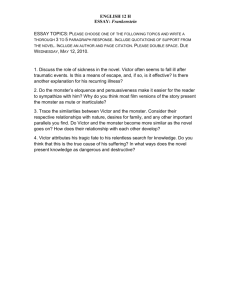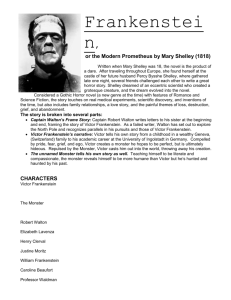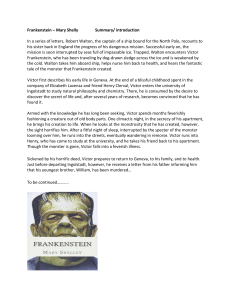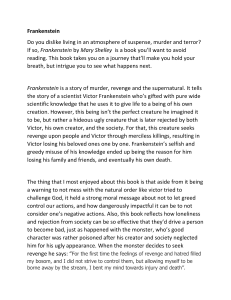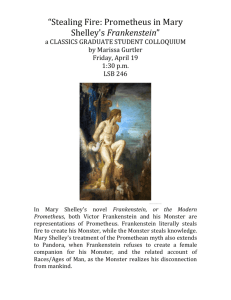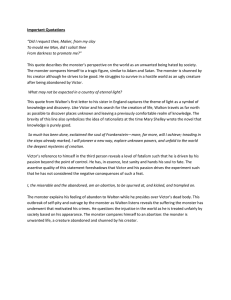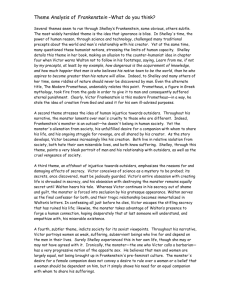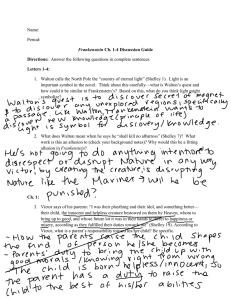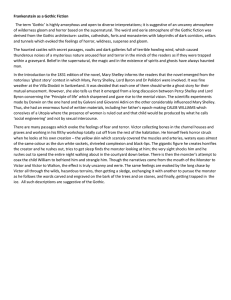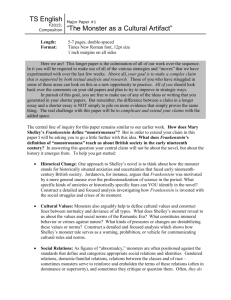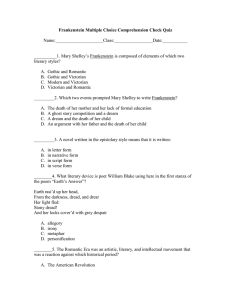Frankenstein
advertisement
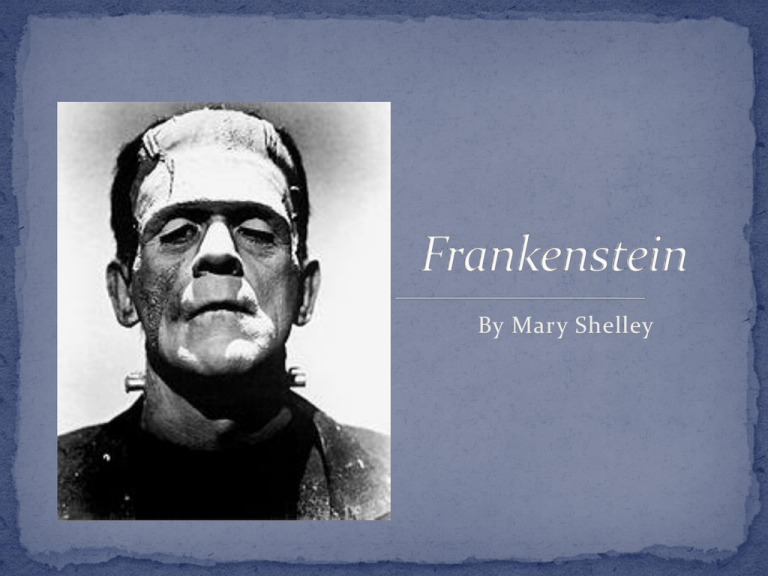
By Mary Shelley Wrote Frankenstein when she was only 18 Published anonymously Both parents were famous writers. Marriage to Percy Shelley, a famous poet “Romantic beyond romance.” A passion for human emotion The belief that all humans are innately good The advocacy of free thought The idea that comfort is found in healing elements of nature An opposition to political authority and social convention A strong sense of human individuality A belief in the supernatural The use of the morbid and grotesque The use of intense emotion The evocation of fear Using weather to depict a character’s mood Use of specific vocabulary (melancholy, wretched, etc.) Giving nature the power to destroy Victor as God, creator of Monster as the biblical monster Victor as similar to his creation, a “monster” because of his actions Adam because Adam was the 1st creation, and was thrown out of Paradise, and so was the monster Monster as a satanic representation because Satan, banned from heaven, vows revenge on God, just as the monster vows revenge on Victor Isolation Companionship Light Dark Day Night Handsome VS Ugly Male Female Science Philosophy Knowledge Ignorance Mary Shelley originally did not name the novel, Frankenstein. She was very literate and well-versed in classics. Allusions to Greek mythology. Allusions to famous literary works: Milton Paradise Lost Romantic Poets Coleridge “Kubla Khan” Coleridge “Rhyme of the Ancient Mariner” Written by Robert Walton in 1700s. Addressed to his sister, Margaret Saville. Arctic explorer (passage to North Pole) Wants to find the “secret of the magnet” Ship surrounded by ice, witnesses a dog sledge and a gigantic man The next morning the ice breaks, and he rescues a stranger stranded on a piece of ice This man is Victor Frankenstein (who then narrates chapters 1-24). EXCITED for his expedition “I feel my heart glow with an enthusiasm which elevates me to heaven, for nothing contributes so much to tranquillise the mind as a steady purpose…” (10) LONELY “but I bitterly feel the want of a friend. I have no one near me, gentle yet courageous, possessed of a cultivated as well as of a capacious mind, whose tastes are like my own, to approve or amend my plans.” (13) COMPASSIONATE towards Victor “I should have been happy to have possessed as the brother of my heart.” (22) Is knowledge empowering or destructive? Is a creator obligated to his or her creation, even if the creation is hateful and destructive? Does society create a monster through prejudice and hate? Is revenge justified at all costs? Do “people’s” formative years dictate what they become? Do they have hope of redemption once their personalities form? “His limbs were nearly frozen, and his body dreadfully emaciated by fatigue and suffering. I never saw a man in so wretched a condition.” (20) “You may easily perceive, Captain Walton, that I have suffered great and unparalleled misfortunes. I had determined, at one time, that the memory of these evils should die with me; but you have won me to alter my determination.” (23) “You seek for knowledge and wisdom, as I once did…you may deduce an apt MORAL from my tale…” (23)

